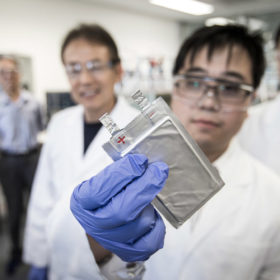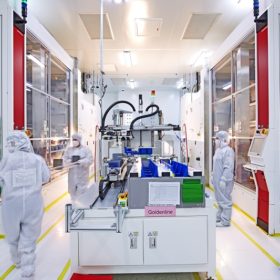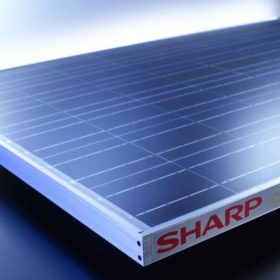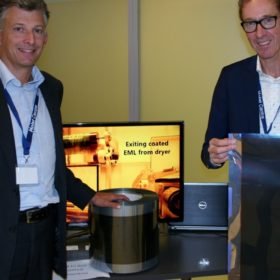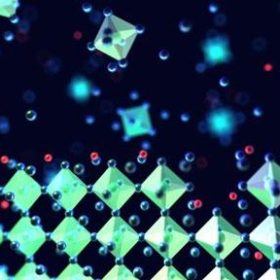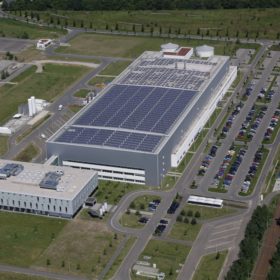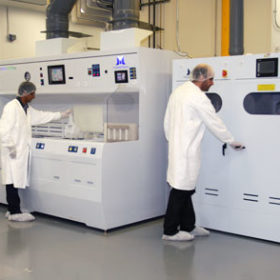Australian researchers unveil new sodium-ion battery design
Scientists from the University of Wollongong in Australia have developed battery cells based on sodium-ion technology, which the university says can achieve excellent cycling stability and easily be scaled up for mass production.
The weekend read: Cell manufacturer ranking
pv magazine teams up with solar market analysts at IHS Markit to run through the top 10 crystalline silicon cell manufacturers of 2017, and the events that shaped their market landscape throughout the year.
JA Solar issues strong response to IP theft allegations
Chinese module manufacturer, JA Solar has issued a statement refuting assertions made by SolarWorld in hearings conducted last year, which were reported last week in the findings of United States Trade Representative (USTR) report into Chinese practices related to intellectual property.
Sharp hits 25.09% efficiency on full size HJT cell
Japanese electronics giant, Sharp has announced the achievement of a 25.09% conversion efficiency, from a cell utilizing both heterojunction (HJT) and back contact technology. The measurement has been validated by Japan Electrical Safety & Environment Technology Laboratories (JET).
SERIS researchers develop new multi-cSi texturing technique
Scientists from the Solar Energy Research Institute of Singapore (SERIS) have announced the development of a new wet chemical process to allow multi-cSi wafers to be cut with diamond wire saw technology, and subsequently textured to reduce their reflectivity.
Solliance hits 26.3% efficiency on perovskite/silicon tandem solar cell
European solar research organization, Solliance and the Energy Research Center of the Netherlands (ECN) have announced the achievement of 26.3% efficiency on a transparent perovskite solar cell combined with a crystalline silicon solar cell.
Fixing perovskite defects with potassium
Scientists led by Cambridge University have discovered that adding a simple solution of potassium to the ink solution has the effect of ‘healing’ defects in metal-halide perovskite films, and immobilizing ion movement. This, according to the researchers, could push the material to higher efficiencies, while also increasing stability.
Astronergy announces upgrades to German production line
Module manufacturer Astronergy has announced a series of upgrades contributing to an overall production efficiency increase of 40% at one of its production lines in Frankfurt (Oder), close to Germany’s border with Poland.
Natcore develops new processes for patented foil cell
U.S. based technology company, Natcore has announced two new processes, which it says could dramatically reduce the production costs of its foil cell, which it has been working to commercialize for the past couple of years.
BBOXX raises €1 million for off-grid solar through crowdfunding
U.K.-based off-grid developer, BBOXX and online renewable energy investment platform, Trine have raised €1 million from crowdfunded investments in less than one month. The financing will be disbursed at the beginning of April, to enable BBOXX to scale up its operations in Kenya.

